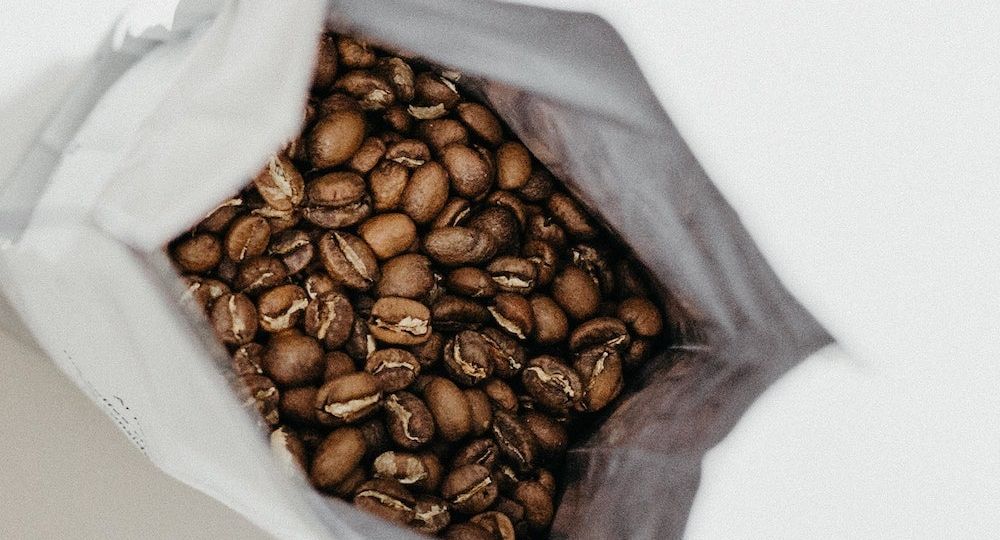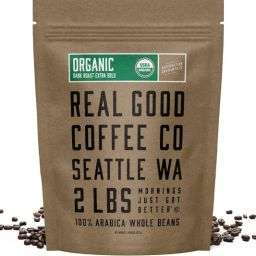
The essence of a perfect cup of coffee lies not just in the brewing technique but significantly in the freshness of the coffee beans used. Freshness is pivotal to achieving the rich aroma and robust flavors that coffee aficionados cherish. This introduces the critical role of proper storage techniques in preserving the intrinsic qualities of coffee beans, ensuring they remain as close to their peak condition as possible from the roastery to the cup.
The Basics of Coffee Bean Freshness
Coffee bean freshness is a measure of how well the beans retain their original flavor, aroma, and oils post-roasting. Freshness is influenced by several factors including the bean’s exposure to air, light, moisture, and temperature.
The moment coffee beans are roasted, they begin to emit carbon dioxide, a natural process known as degassing, which plays a crucial role in preserving the bean’s freshness by creating a barrier against oxygen.
The Role of Oxygen and Oxidation in Coffee Freshness
Oxygen, while vital for human survival, is detrimental to the freshness of coffee beans. Exposure to air initiates the oxidation process, leading to the deterioration of the coffee beans’ essential oils and aromatic compounds. This results in a loss of flavor and aroma, rendering the coffee stale. Sealed storage solutions are recommended to minimize air exposure and prolong the beans’ freshness.
The Impact of Moisture on Coffee Beans
Moisture is another formidable enemy of coffee bean freshness. Beans exposed to humidity can quickly become stale and may even develop mold. The interaction between coffee beans and moisture can accelerate the loss of freshness, leading to a dull and lifeless cup of coffee.
To combat this, it is advisable to store coffee beans in a dry environment and use airtight containers, possibly with desiccant packs, to ward off any moisture intrusion.
Best Practices for Storing Coffee Beans
To maximize the freshness and flavor of your coffee beans, proper storage is essential. The key is to minimize the beans’ exposure to air, light, moisture, and heat. Use airtight containers made of non-reactive materials, such as ceramic or glass, and store them in a cool, dark place.
Avoid clear containers unless you can keep them in a dark cupboard. Containers with a one-way valve are recommended, as they allow carbon dioxide to escape while preventing air from entering.
To Freeze or Not to Freeze Coffee Beans
The decision to freeze coffee beans is contentious among coffee enthusiasts. While freezing can slow down the degradation process by reducing the beans‘ exposure to oxygen, it also introduces the risk of moisture, which can be detrimental.
If you choose to freeze your beans, ensure they are in airtight, moisture-proof containers to prevent freezer burn and condensation. It’s advisable to divide them into small portions, so you only defrost what you need, avoiding repeated freeze-thaw cycles.
Shelf Life of Coffee Beans in Sealed Bags
The shelf life of coffee beans can vary significantly based on storage conditions. In a sealed bag, whole coffee beans can maintain freshness for about six months to nine months when stored properly in a pantry. Freezing can extend their life up to two or three years, though this can affect taste and quality. Once opened, the beans’ freshness decreases; hence, it’s best consumed within a month for optimum flavor.
Factors Influencing Coffee Bean Shelf Life
Several factors affect how long coffee beans remain fresh:
- Roast type: Light roasts may have a slightly longer shelf life than dark roasts due to their lower oil content, which slows down the oxidation process.
- Bean condition: Whole beans last longer than ground coffee because they have less surface area exposed to oxygen.
- Storage method: Airtight containers, away from light and heat, preserve freshness longer. Freezing can extend shelf life but may alter flavor profiles.
Proper storage and understanding the factors that affect the shelf life of coffee beans can significantly enhance your coffee experience by ensuring you enjoy the beans at their peak freshness and flavor.
FAQs
Can coffee beans be stored long term?
Yes, coffee beans can be stored long term if done correctly. The optimal conditions involve keeping them in a cool, dark place in an airtight container. Freezing coffee beans is also an option for extending their shelf life, although it should be done with caution to avoid moisture contamination.
What happens if you drink expired coffee?
Drinking expired coffee is generally considered safe, but the flavor and aroma will be significantly diminished. While it won’t likely make you sick, the quality of your coffee experience will be poor. If the coffee shows signs of mold, it should be discarded immediately.
How does roast affect the freshness of coffee beans?
The level of roast affects the freshness of coffee beans; light roasts tend to retain their freshness longer than dark roasts. This is because dark roasts have more oils that are exposed to the air, which can accelerate the oxidation process and lead to quicker staleness.
Whole beans vs. ground coffee: Which lasts longer?
Whole coffee beans last longer than ground coffee because they have less surface area exposed to air, slowing down the oxidation process. Ground coffee begins to lose its freshness almost immediately after grinding.
Conclusion
The freshness of coffee beans is crucial for enjoying the full spectrum of flavors and aromas that coffee offers. Sealed bags can keep coffee beans fresh for six to nine months, depending on storage conditions. Proper storage involves minimizing exposure to air, light, moisture, and heat. Freezing beans can extend their shelf life but may affect taste.
Light roasts may stay fresh longer than dark roasts due to less surface oil exposure. Whole beans are preferable to ground coffee for longevity due to reduced oxidation. Ultimately, understanding and implementing these best practices for storing coffee beans will ensure a superior coffee-drinking experience.









